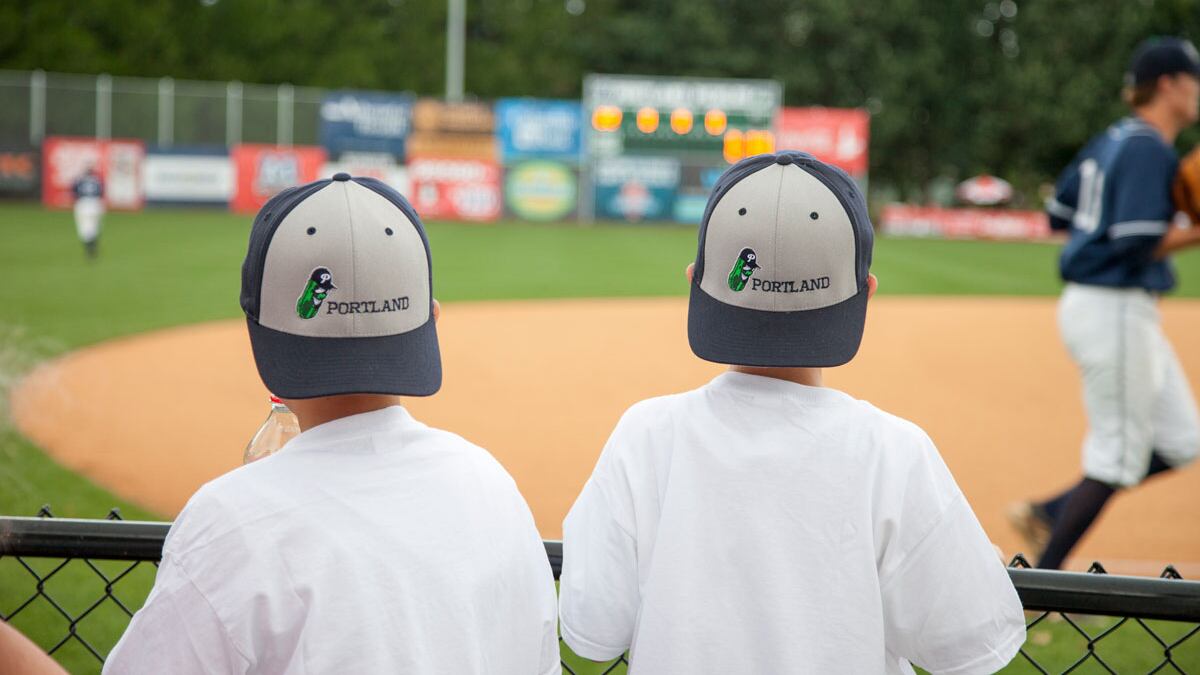Landing a Major League Baseball franchise in Portland is a chicken-and-egg proposition. So which comes first: buying property for a stadium or securing a team?
Steve Kanter, the former Lewis & Clark Law dean who was one of the leaders of a previous effort to bring MLB to Portland, says based on everything the Portland group learned from 2000 to 2005, it's the latter.

"Everything depends on the team," says Kanter, who's not involved in the current project.
But unlike in the early '00s, there are two separate paths to a team this time: league expansion or the relocation of existing teams. And if the Portland baseball group gets ahold of real estate that would lend credibility to the effort.
Major League Baseball Commissioner Rob Manfred said last year that before he considers adding two more teams to the league, he first needs to get the Oakland Athletics and Tampa Bay Rays squared away.
"For us to expand, we need to be resolved in Tampa and Oakland in terms of their stadium situations," Manfred told the press, according to CBS Sports. "It would be difficult to convince the owners to go forward with an expansion until those situations are resolved."

Tampa Bay plays in an aging domed stadium in St. Petersburg, Fla. The atmosphere at games is much like watching baseball played inside a tin can, and the Rays are last in the major league in attendance. They edge out Oakland, which plays in a charmless concrete bunker in a suburban no man's land.
Both teams are angling for new, downtown ballparks with heavy public subsidy.
Although both franchises have struggled to sell tickets, a coalition of big businesses in Tampa is fighting hard to keep the team there. And in March, Oakland Mayor Libby Schaaf, who has watched the Golden State Warriors move from her city to San Francisco and the Oakland Raiders flee to Las Vegas, announced exclusive negotiations aimed at "keeping the A's rooted in Oakland."
Unlike the National Basketball Association and the National Football League, Major League Baseball has historically been reluctant to move franchises. Since 1972, for instance, records show the NBA has relocated 11 franchises and the NFL has relocated 10. MLB? Only two.
In the early 2000s, Portland built its case for welcoming the failing Montreal Expos on the premise that the team could immediately move to Providence Park (then called Civic Stadium), which could have been expanded to hold more than 30,000 fans.
"We had Civic Stadium as a place the Expos could move to right away," says John Vosmek, a Portland architect who worked for 10 years as part of the earlier group chasing MLB.
But expanding an existing facility as a temporary home is no longer an option, because Major League Soccer and the Timbers agreed to restrict the stadium's use to games played with balls that are kicked, not batted.
Two weeks ago, the Portland Diamond Project put in two separate formal bids for properties that could hold a stadium: the Portland Public Schools headquarters in the Lloyd District and the former ESCO Corp. foundry in Northwest Portland.

(A City Hall source tells WW the Diamond Project reps were at one time interested in another site as well: Terminal 1, a Willamette River shipping facility just west of the Fremont Bridge the city sold to Lithia Motors last year.)
The ESCO site in Northwest has long been used as a mining equipment manufacturing plant, but it closed in 2016. The company recently sold for $1.29 billion to the Weir Group, a Scottish manufacturer, which could complicate negotiations.
Another problem: transporting crowds of thousands into a Northwest Portland neighborhood with one freeway exit (often clogged) and no rail lines. (Mayor Ted Wheeler's office did include a $370,000 budget item this week for studies of a Portland Streetcar expansion further into Northwest.)
The school district headquarters near the Rose Quarter can handle crowds, but the baseball investors' $80 million bid is well below the $105 million the Multnomah County assessor says it's worth. The district has responded by saying it'll solicit other offers before considering the baseball stadium proposal.
"We didn't just fall off the kale truck yesterday," Portland School Board Chairwoman Julia Brim Edwards tells WW. "We know it's a valuable property."
Brim Edwards says she'd personally rule out moving the district headquarters to Northeast 82nd Avenue, where the Portland Diamond Project has proposed to offer the district a property swap.

These 11 People Will Decide the Fate of a Portland Baseball Stadium
As Portland Aims for the Major Leagues, Which Comes First: The Ballclub or the Ballpark?
